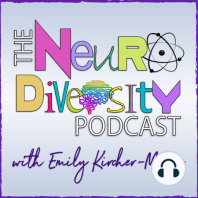32 min listen

Releasing the Potential of High-Ability Kids
Releasing the Potential of High-Ability Kids
ratings:
Length:
37 minutes
Released:
Jul 15, 2021
Format:
Podcast episode
Description
How can we knock down the walls that surround many neurodivergent kids? Should teachers play a role in their students’ social and emotional well-being, or is school only about academic rigor? What are some teaching techniques that will get kids talking and participating? Emily Kircher-Morris and Jim Delisle have a conversation about ways to release the potential that’s often locked inside neurodivergent kids, on episode 89. ABOUT THE GUEST - James Delisle, PhD, was a professor of education at Kent State University for 25 years and was selected by faculty and students there as a "Distinguished Professor", the University's most prestigious teaching award. Jim has worked on behalf of gifted children and teens for nearly four decades. The author of hundreds of articles and 17 books that have been published in multiple languages, he continues to consult with schools worldwide in an effort to increase awareness of the needs of gifted children and adults. For the past several years, Jim has worked part time with highly gifted 9th and 10th graders at the Scholars' Academy in Conway, South Carolina. You can support the podcast and receive subscriber-only benefits at www.patreon.com/neurodiversity. The Neurodiversity Podcast is available on Facebook and Instagram, and on Twitter @NeurodiversePod. For more information go to www.NeurodiversityPodcast.com
Released:
Jul 15, 2021
Format:
Podcast episode
Titles in the series (100)
Thinking Twice About Ways to Help Twice Exceptional Students | Psychology | 2e | Gifted: The systems in place for gifted kids in public education often fall short for 2e students. Sometimes 2e kids aren’t even identified with the limited testing resources of some schools. In the first of several episodes on twice-exceptionality this... by Neurodiversity Podcast